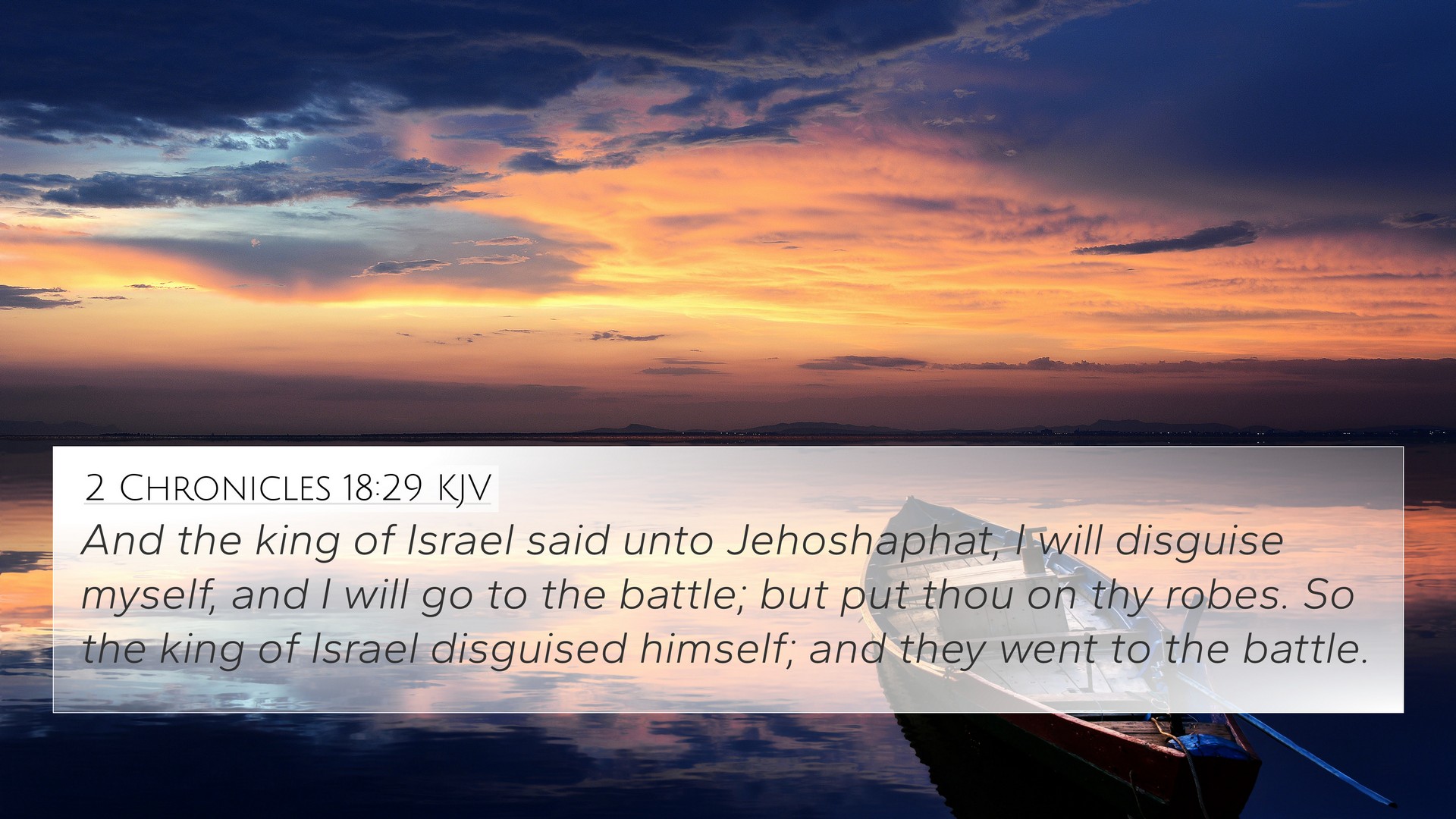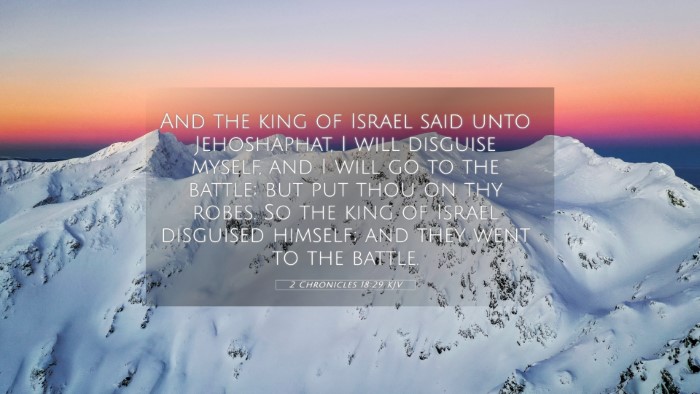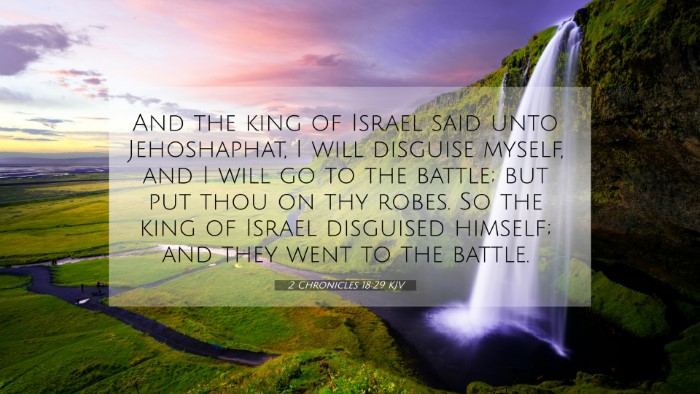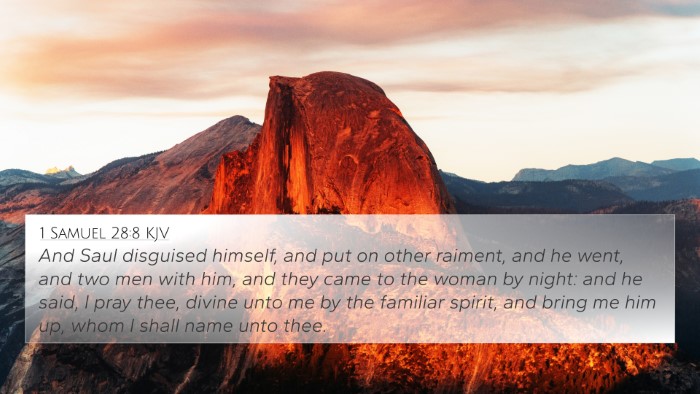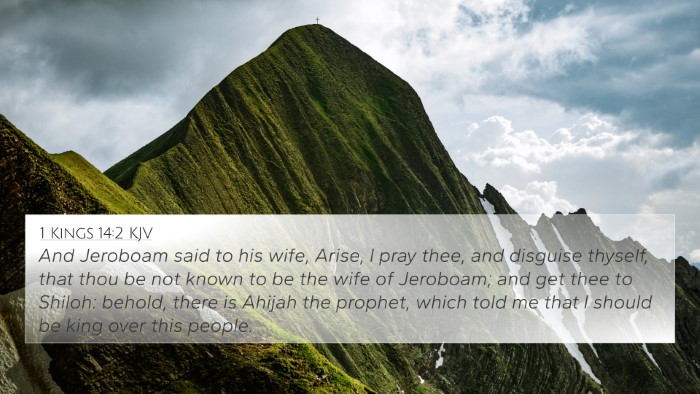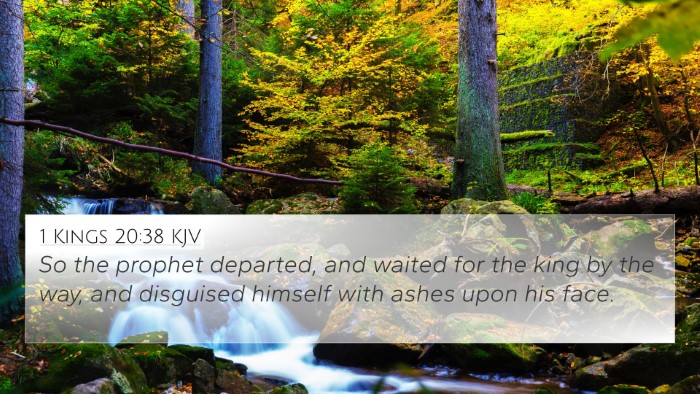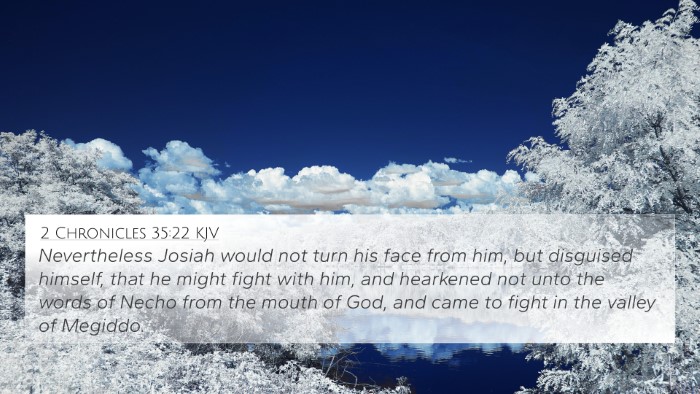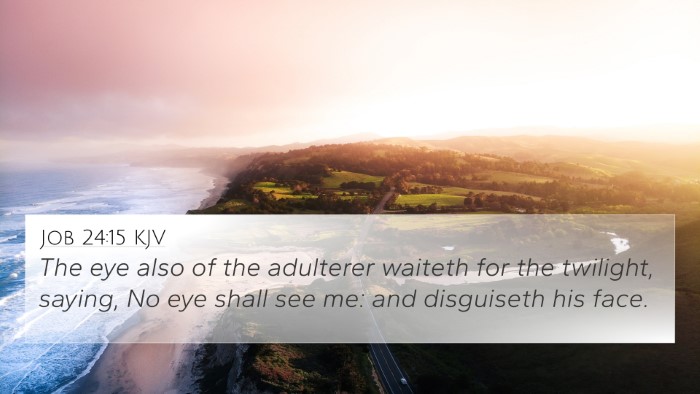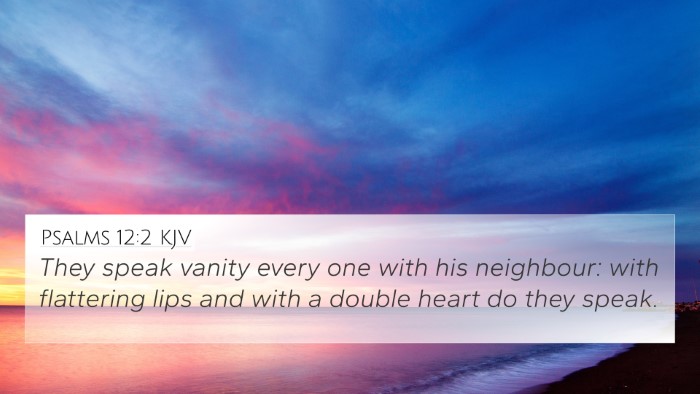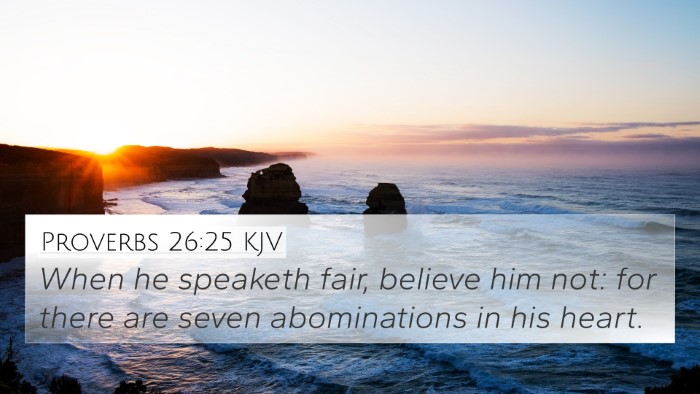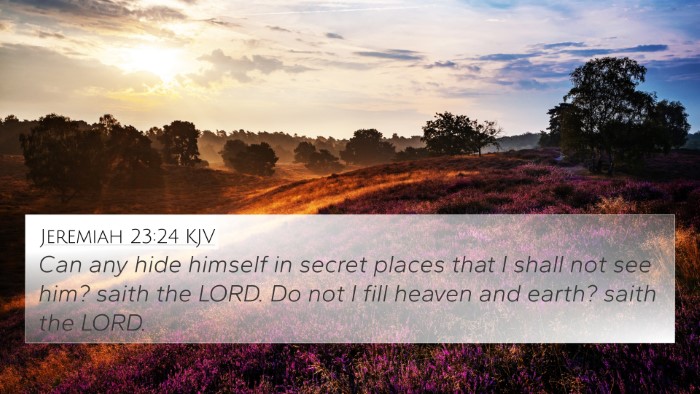Understanding 2 Chronicles 18:29
The verse 2 Chronicles 18:29 reads: "And the king of Israel said to Jehoshaphat, 'I will disguise myself and go into battle, but you wear your robes.' So the king of Israel disguised himself and went into battle." This verse places us in the context of a pivotal moment during the joint military venture between Israel and Judah under King Ahab and King Jehoshaphat.
Summary of Context
This scripture highlights Ahab's deceptive tactics as he prepares for battle against the Arameans. Ahab seeks to hedge his vulnerability by disguising himself while placing Jehoshaphat in danger by donning royal attire. This act of stratagem raises ethical questions about leadership responsibility and fidelity to divine support.
Insights from Public Domain Commentaries
Matthew Henry's Commentary
Henry emphasizes the folly of Ahab’s reliance on manipulation rather than faithfulness to God's guidance. He notes that Ahab’s decision to disguise himself not only showcases his lack of trust in divine protection but also demonstrates a duplicitous heart that disregards the welfare of his ally, Jehoshaphat.
Albert Barnes' Notes on the Bible
Barnes points out the implications of Ahab's choice to wear a disguise. He states that Ahab's reliance on such subterfuge is a clear indication of his sinful character. The absence of divine courage coupled with his desire for self-preservation leads to a moral crisis, foreshadowing the judgment he was about to face in battle.
Adam Clarke's Commentary
Clarke elaborates on the friendship between Ahab and Jehoshaphat and the gravity of Ahab’s proposal. He refers to Ahab's actions as an undue risk thrust upon Jehoshaphat, raising questions about their alliance's integrity and Ahab's leadership. This clever yet unethical tactic is crucial for understanding the treacherous dynamics of their relationship.
Cross-References
This verse can be connected to various other scripture passages that illustrate themes of deception, leadership ethics, and divine sovereignty. Here are relevant cross-references:
- 1 Kings 22:30-34 - Further details of the battle, illustrating Ahab's fatal choice.
- Proverbs 12:8 - Insights into the consequences of deceitful actions.
- Psalms 33:16-17 - Commentary on the limits of human strategies in face of divine power.
- James 1:5 - Encouragement for wisdom in decision-making, diverging from Ahab's example.
- 2 Chronicles 18:28 - Precedes this event and showcases the prophetic warning prior to the battle.
- Proverbs 21:30 - Conveys that there is no wisdom or understanding against the Lord's plans.
- Mark 14:10-11 - A juxtaposition of betrayal reflects Ahab's deceit with Judas' betrayal of Jesus.
- Isaiah 28:15 - Explores how men often resort to falsehoods to push their agendas, like Ahab.
- Matthew 10:16 - Jesus teaches about being wise as serpents, urging genuine wisdom in danger.
Thematic Connections
The thematic elements present in this scripture can be examined in relation to leadership, deception, and the consequences of failing to lean unto God for direction.
Leadership and Divine Guidance
Both Ahab and Jehoshaphat represent different aspects of leadership. Jehoshaphat seeks counsel from God through the prophet, while Ahab resorts to machinations. The verse serves to remind readers of the importance of seeking divine wisdom over human cunning.
The Dangers of Deception
Ahab's deceit underscores the potential perils of manipulation, not only for oneself but also for others involved. This willful deception brings about not just personal ruin but also places allies at risk.
Lessons and Reflective Insights
In studying 2 Chronicles 18:29, one emerges with vital lessons regarding the nature of leadership and faith. The necessity of seeking God’s counsel, being transparent in our actions, and considering the impact of our decisions on others becomes paramount. This scriptural narrative invites believers to ponder on their motives and practices in alignment with God’s truth.
How to Approach Cross-Referencing in Bible Study
When delving into Bible verse cross-references, it is essential to implement a systematic approach. Use tools such as a Bible concordance or specific Bible cross-reference guides to enhance understanding and cross-temporal connections between scripture. Such resources illuminate verses that relate to Ahab's cunning or Jehoshaphat's faithful inquiry.
Tools for Finding Cross-References
A variety of resources are available to assist in cross-referencing:
- Bible Concordance - A tool that lists words or phrases and their occurrences throughout the Bible.
- Bible Cross-Reference Guide - Features connections to similar themes across different scriptures.
- Cross-Reference Bible Study - Methods for exploring inter-Biblical dialogues.
- Bible Chain References - Guides to follow thematic links throughout scripture.
- Comprehensive Bible Cross-Reference Materials - Various books and tools dedicated to creating a cross-referenced understanding of biblical texts.
Conclusion
In conclusion, 2 Chronicles 18:29 serves as a cautionary tale illustrating that devious tactics in moments of peril are fraught with danger and lead to dire consequences. Reliance on God's guidance and ethical leadership practices remains the spiritual imperative gleaned from this verse.
